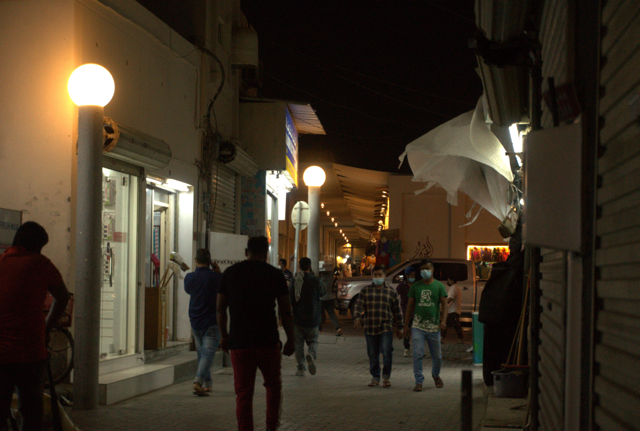“Disrespect of the migrant worker is the rule”
In a study of 94 migrant workers in Dubai carried out between 2017 and 2018, only 5% of men and none of the women interviewed reported feeling appreciated or respected by their employers.
Hospitality and construction workers weigh in on life in Dubai
A lack of respect and appreciation is a hallmark of migrant life in Dubai, according to new research from Gulf Labour Markets and Migration, which also highlights a rather disturbing practice of accommodations that are not segregated by gender.
In a study of 94 migrant workers in Dubai carried out between 2017 and 2018, only 5% of men and none of the women interviewed reported feeling appreciated or respected by their employers.
“Disrespect of the migrant worker is the rule,” the study concludes.
GLMM’s survey included 63 workers in the hospitality industry (hotels, restaurants, taxis, and cleaning) and 31 in the construction sector.
The full paper is available to read here.
Migrants make up to 95% of Dubai’s workforce and nearly 70% of migrants working in low-income occupations. The construction sector is a major destination for migrant workers, employing 27.6% of the workforce or 598,773 people, while some 108,473 people work in hospitality – less than 1% of whom are Emirati.
Accommodation
Marked differences in the female and male migration experiences were a feature of life in Dubai. Women had considerably more negative views about things such as quality of accommodation and wages paid versus wages promised.
Some 41% of female workers were dissatisfied with accommodation compared with just 8% of males. In particular, inadequate toilet facilities and being forced to go against their cultural norms by living in close quarters with members of the opposite sex were areas of concern for women. Some 57% of the migrant workers surveyed said that they were unhappy with the number of bathrooms per worker, which broke down as 78% of females and 27% of males.
“The accommodation also is mixed, males and females. I don’t feel comfortable because you know Philippines … in the accommodation we are 12, three men and the rest are ladies and of course when we are in the morning, all of them ... for example, four of the ladies and three guys, you want to dress up inside the room and somebody is inside, the toilet is full,” one low-skilled female hospitality worker said.
Interestingly, male workers in the hospitality sector had a more positive outlook on accommodation, with several interviewees reporting facilities such as gyms and recreational areas – and in one case, even a swimming pool. The GLMM researchers noted that the workers giving these positive assessments were more highly educated and were working in mid-skilled jobs with large hotel chains such as Holiday Inn and Rotana.
Wages
Dissatisfaction with wages was a common complaint: 51% of interviewees (56% of the low-skilled and 41% of the mid-skilled) said that their salary is not adequate, while only 10% said that it is enough.
Female workers and low-skilled workers both came off worse when it came to receiving the wages promised in their contracts: 66% of women and 23% of men said that the wages they were actually paid were lower than what was promised, while 44% of low-skilled workers got less than the agreed versus 25% of mid-skilled workers.
Women were also more likely than men to have paid unofficial fees to brokers in their country of origin. 88% of women reported paying these fees while only 40% of the men did. Further, the amounts they paid were not trivial: several female hospitality workers from Indonesia said they had to pay AED4,000-5,000 (about $1,090-1,360) in order to secure their work in Dubai.
The UAE’s introduction of VAT in January 2018 also put a squeeze on migrant workers’ finances, according to interviewees:
“Whenever I say to increase my salary to my boss, as my child is growing and I have to send some money to my family in India, and now VAT has also come so it is very tough to send money to India or ask for increments. Also, salary comes late. Whenever I ask for increment, they only say we will look after it just relax,” a mid-skilled Indian hospitality worker said.
Women were more likely than men to express disappointment about the amount of money they had managed to send home:
“Some of the men stated that while they faced difficulties, they could at least fulfil their responsibility to feed their family. It is possible that women have greater ambitions regarding the benefits they would like to reap from their migration experience and may therefore be less satisfied,” the report concluded.
Although migrants painted a tough picture of life in Dubai, 40% of all survey respondents said they would “definitely migrate again” if they knew what to expect when they arrived. Only 9% said they definitely would not have come, while the remaining 50% did not have a clear opinion. Job opportunities, safety in public spaces and perceptions of a strong rule of law were all as attractive features of Dubai.




